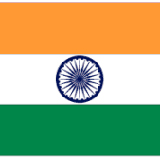
ASHA Anjana Uikey visits Meena and her newborn baby in her home to undergo some health check-ups, Bodli village, Maharastra. Photo by Andy Hall / Save the Children
Nearly 800,000 rural women community health activists (ASHA) in India will be paid Rs. 250 per neonate for providing home-based newborn care in their villages by home visiting each mothers and neonate. The landmark policy decision was approved by the Mission Steering Group, the highest body of the National Rural Health Mission (NRHM) of the Government of India, in a recent meeting in Delhi. The meeting was chaired by India’s Minister of Health, Mr. Gulam Nabi Azad, and was attended by the Minister for rural development Mr. Vilasrao Deshmukh, the Member Planning Commission Ms. Syeda Hamid, and secretaries of various ministries of the Govt. of India and of the states. Principal secretary, Health and Family Welfare Mr. Chandramouli, special secretary health and director NRHM, Mr. P.K. Pradhan, and joint secretary in-charge Reproductive and Child Health Mr. Amit Mohan Prasad represented the health ministry. Dr. Abhay Bang, the originator of Home-Based Newborn Care was also present.
Out of 27 million live births every year in India, nearly 1 million die within first 28 days of life. This constitutes the largest component of India’s infant mortality rate which is lagging at 50 per 1000 live births. Home-Based Newborn Care (HBNC), a new approach innovated and proven in field by SEARCH, an NGO working in Gadchiroli district, has now been widely accepted. The 11th Five Year Plan of India recommends this approach as the main strategy to reduce IMR in India.
The Ministry of Health and Family Welfare has already prepared and introduced training modules to train ASHAs to deliver HBNC. With the newly approved performancelinked financial incentive, HBNC will now become a regular activity of ASHA.
The Health Minister Mr. Azad underscored the importance of this training and of need to keep health records of each neonate and of the home visits made by ASHA so that a good quality service of home-based newborn care is actually delivered and can be monitored.
2 comments